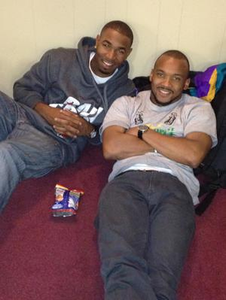Examination of Black Men's Perceptions Of Personal Finance And Lived Experiences Developing Financial Literacy and Building Financial Capability Through The Lens of Institutional Racism
View
@ Florida International Unviersity
Abdullah, Jonathan B
Description
This phenomenological study examined Black men’s perceptions of their personal finances and their lived experiences developing financial literacy and building financial capability through the lens of institutional racism. Institutional racism was used as the conceptual framework to examine the participants lived experiences. Institutional racism works to disadvantage minorities and simultaneously provide privileges to Whites through organizational and institutional policies, practices, and treatment (Unzueta & Lowery, 2008). Purposive sampling was used to obtain 16 participants for this study. Semi-structured interviews were conducted to collect the data from the participants and were analyzed using the Moustakas’s (1994) Modification of Stevick-Colaizzi-Keen Method of Analysis of Phenomenological data. The inductive analysis revealed five themes: a) intergenerational financial illiteracy, b) black financial fragility, c) racial financial profiling, d) black hyper-masculinity, and e) earning inequity. These emerged themes were composites of the participants’ individual textural descriptions of their lived financial experiences. The emerged themes represent socioeconomic barriers the participants experienced as conditions of institutional racism. The study revealed that these socioeconomic barriers challenged the participants lived experiences acquiring financial literacy and building financial capability. The socioeconomic barriers were linked to their experiences growing up in households with financially illiterate parents and living in financially fragile families. The participants were relegated to learn about personal finances through being curious via trial-and-error experimentation which put them at a disadvantage to their White male counterparts. The participants nor did their families have direct access or awareness of financial literacy programs that could have helped them gain financial equity with...
Thomas ReioJudith BernierMaria LovettTeresa LucasIsaac Burt
Record Contributed By
Florida International UnviersityRecord Harvested From
Sunshine State Digital NetworkKeywords
- Adult And Continuing Education
- Black Hyper Masculinity
- Black Men
- Education
- Financial Capability
- Financial Fragility
- Financial Illiteracy
- Financial Literacy
- Financial Literacy Programs
- Institutional Racism
- Intergenerational Financial Illiteracy
- Micro Insults
- Micro Invalidations
- Racial Financial Profiling
- Racial Micro Aggressions
- Socioeconomic Barriers













![Atlas of the city of Nashville 1908. [Plate 21A] Atlas of the city of Nashville 1908. [Plate 21A]](https://d2l9jrtx1kk04i.cloudfront.net/9d0b5b680876cb61db820448065e610ad25d5192.png)




